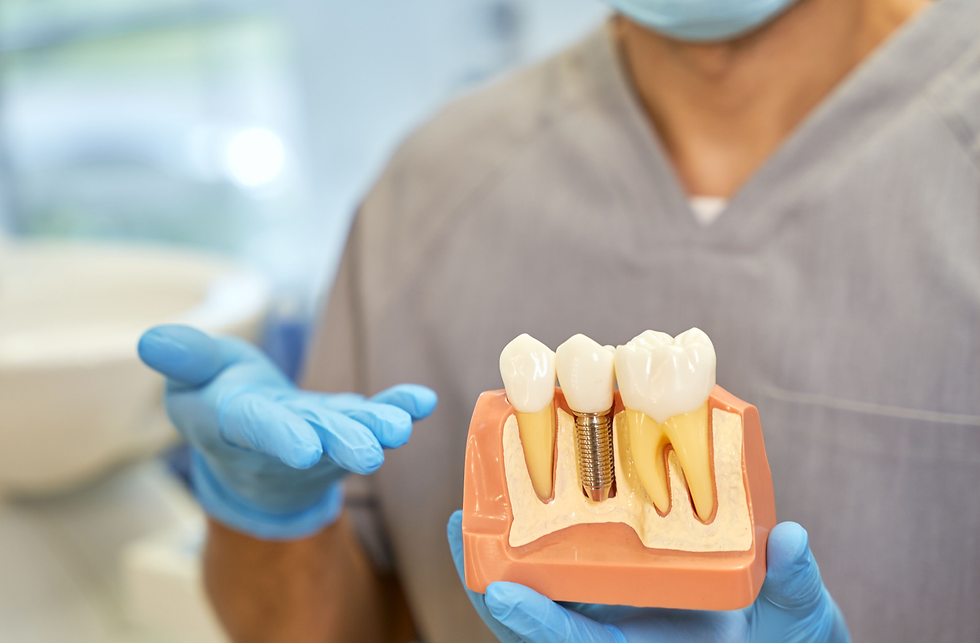Stem Cell Therapy for Joint Pain: Benefits and Options in Dubai
- Areej george
- Oct 9, 2024
- 3 min read
Stem cell therapy is an innovative treatment option that harnesses the body’s natural healing capabilities to address various health issues, including joint pain. This approach uses stem cells—undifferentiated cells with the potential to develop into different cell types—to repair damaged tissues and promote healing. In Dubai, this therapy has gained traction as an effective Stem Cell Therapy & Treatment in Dubai for individuals suffering from joint pain due to conditions like osteoarthritis, rheumatoid arthritis, and injuries.
Understanding Joint Pain
Joint pain can significantly impact an individual's quality of life. It can result from various factors, including aging, injuries, and degenerative diseases. Traditional treatment methods often involve pain management strategies, such as medications or physical therapy. However, these approaches may only provide temporary relief. Stem cell therapy offers a regenerative alternative by targeting the root cause of joint pain.
How Stem Cell Therapy Works
Stem cell therapy aims to regenerate damaged joint tissues, reduce inflammation, and restore function. The therapy begins with the collection of stem cells, typically derived from the patient’s own body. This can involve harvesting cells from bone marrow, adipose (fat) tissue, or blood. Once collected, the stem cells are processed and then injected into the affected joint. Upon injection, the stem cells work to repair and regenerate the damaged cartilage and other tissues. They have the potential to reduce inflammation and promote the healing of underlying conditions causing joint pain. This regenerative process can lead to improved mobility, reduced pain, and enhanced overall joint function.
Benefits of Stem Cell Therapy for Joint Pain
Natural Healing
One of the most significant advantages of stem cell therapy is its ability to promote natural healing. By utilizing the body’s own cells, the treatment minimizes the risk of rejection and complications associated with foreign substances. This approach harnesses the body’s regenerative capabilities, making it a safer option for many patients.
Long-Lasting Relief
Stem cell therapy offers the potential for long-lasting relief from joint pain. Unlike traditional pain management methods, which often require ongoing medication, this therapy targets the underlying cause of the pain. Many patients report sustained improvements in their symptoms and joint function over time, allowing them to resume daily activities without discomfort.
Reduced Inflammation
Inflammation is a common factor contributing to joint pain and damage. Stem cells possess anti-inflammatory properties that can help reduce swelling and discomfort in the affected areas. This reduction in inflammation not only alleviates pain but also contributes to overall joint health.
Improved Mobility
Patients undergoing stem cell therapy often experience improved mobility and flexibility in their joints. By repairing damaged tissues and reducing inflammation, the therapy can enhance joint function, enabling individuals to engage in physical activities they may have previously avoided due to pain.
Minimal Downtime
Another benefit of stem cell therapy is the minimal downtime associated with the procedure. Most patients can return to their regular activities shortly after treatment. Unlike surgical options, which may require extensive recovery periods, stem cell therapy is less invasive and allows for a quicker return to daily routines.
Options for Stem Cell Therapy in Dubai
Bone Marrow-Derived Stem Cells
One common source of stem cells for therapy is bone marrow. This procedure involves harvesting stem cells from the patient’s bone marrow, typically from the pelvic region. After collection, the stem cells are processed and injected into the affected joint. This method is known for its high concentration of stem cells and has shown promising results in treating joint pain.
Adipose-Derived Stem Cells
Another option is to derive stem cells from adipose tissue, which is abundant in the body. This approach involves a minimally invasive liposuction procedure to obtain the fat tissue, from which stem cells are isolated. Adipose-derived stem cells have shown great potential in promoting tissue regeneration and reducing inflammation, making them a valuable resource in joint pain management.
Platelet-Rich Plasma (PRP) Therapy
Although not a stem cell treatment per se, PRP therapy often complements stem cell therapy. PRP involves using the patient's blood, which is processed to concentrate platelets. The resulting solution is rich in growth factors that promote healing. Combining PRP with stem cell therapy can enhance the regenerative effects and improve overall outcomes for patients suffering from joint pain.
Conclusion
Stem cell therapy represents a groundbreaking approach to managing joint pain, offering patients in Dubai an innovative alternative to traditional treatment methods. With its potential for natural healing, long-lasting relief, reduced inflammation, and improved mobility, stem cell therapy has garnered attention as a viable solution for those seeking to enhance their quality of life. As the field of regenerative medicine continues to evolve, stem cell therapy remains at the forefront of joint pain management, providing hope and healing for individuals seeking relief from chronic discomfort.














Comments